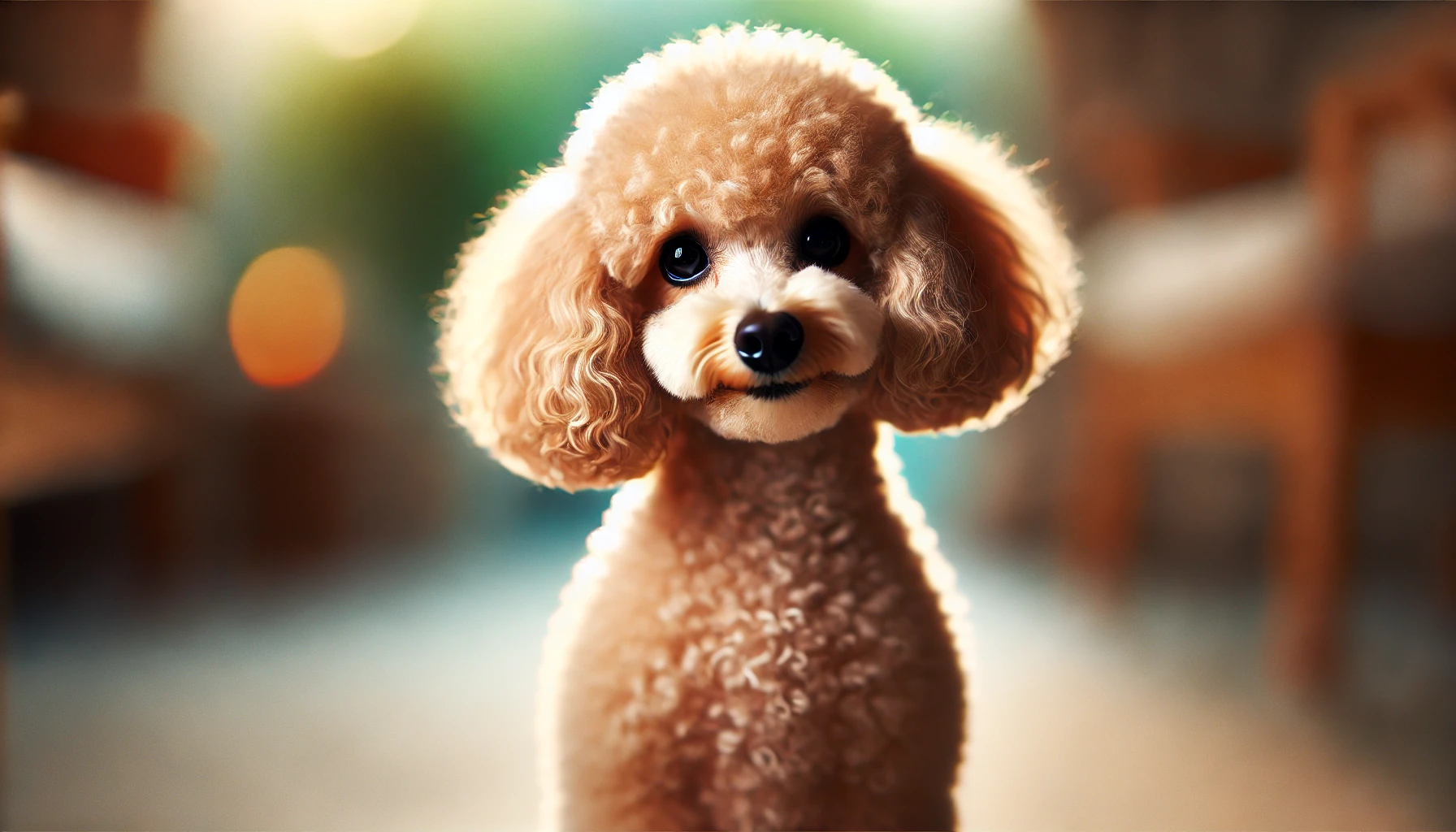The Unique Traits of Rottweilers: Loyalty and Protection
Rottweilers are one of the most beloved dog breeds, known for their unique combination of loyalty and protection. If you’re considering adding a Rottweiler to your family, understanding their specific traits can help you be a great owner.
First and foremost, loyalty is a defining characteristic of Rottweilers. These dogs form deep bonds with their families and are naturally inclined to be protective. When raised in a loving environment, they become devoted companions who will stand by your side through thick and thin. This strong loyalty makes them excellent family pets, especially for individuals or families who have experience with dogs.
It’s essential to foster this loyalty by spending quality time with your Rottweiler. Positive reinforcement training and socialization are crucial from a young age. Here are some tips to build a strong bond:
- Training Consistency: Establish rules and stick to them. Consistency helps your Rottweiler understand what is expected.
- Positive Reinforcements: Use treats, praise, and affection to reward good behavior.
- Socialization: Expose your dog to different people, animals, and environments to help them feel comfortable.
As you nurture your Rottweiler’s loyalty, you will also notice their protective nature. Rottweilers are known to be naturally vigilant, making them exceptional watchdogs. Their protective instinct is pronounced, and they often take on the duty of guarding their home and loved ones.
Here are some ways Rottweilers show their protective traits:
- Alertness: Rottweilers are very aware of their surroundings. They will bark to alert you if they sense something unusual.
- Physical Presence: Their large size and muscular build can deter intruders simply by being present.
- Fearlessness: Rottweilers are often unafraid to confront potential threats, showcasing their bravery.
However, their protective instincts can sometimes be misinterpreted. It’s essential to recognize that while they are protective, this behavior should not turn aggressive toward familiar faces or guests. Proper training and socialization will help manage this side of their nature.
Rottweilers require regular exercise and mental stimulation to channel their energy positively. A bored Rottweiler can become overly protective or exhibit destructive behaviors. Activities such as walks, playtime, and obedience training can help keep their minds sharp and their bodies active.
Being a breed suitable for experienced dog owners, Rottweilers thrive when they are in the hands of someone who understands their personality. They are intelligent and eager to learn, but they can also be stubborn. This makes it crucial for you to adopt a firm yet loving approach to training. An experienced owner will recognize the balance of assertiveness and warmth needed for a successful relationship with their Rottweiler.
Here are some additional tips for potential Rottweiler owners:
- Engage in Training Classes: Join a local obedience class to enhance your skills as a handler and to socialize your dog.
- Provide Mental Challenges: Puzzle toys and scent games can be excellent ways to keep Rottweilers engaged.
- Ensure Regular Vet Check-ups: Ahealthy dog is a happy dog. Regular vet visits ensure that they remain in tip-top shape.
It’s essential to appreciate the unique traits of Rottweilers. Their loyalty and protective nature are both a blessing and a responsibility. With the right approach, you can cultivate a strong bond with your Rottweiler that will be rewarding for both you and your dog. While they might not be the right match for every owner, for those who understand and appreciate Rottweilers, they can offer a loyal friendship and protection that is hard to match.
These strategies into your daily life with a Rottweiler will not only strengthen your bond but also ensure that both you and your dog lead a happy and healthy life together. Remember, a well-trained Rottweiler is a devoted companion that will guard your home with grace and vigilance, making them one of the finest choices for those who are experienced in dog ownership.
Why Rottweilers Are Best Suited for Experienced Dog Owners
If you’re considering bringing a Rottweiler into your home, it’s essential to understand why these dogs are best suited for experienced owners. Rottweilers are loyal and protective companions, but they also come with a unique set of personality traits and requirements that demand thorough knowledge and preparation. Let’s explore some of the main reasons why these magnificent animals excel in the hands of seasoned dog owners.
Understanding Rottweiler Temperament
Rottweilers are known for their strong personalities. They are intelligent, confident, and often assertive. Their loyalty to their family is unmatched, making them excellent guardians. However, their protective nature can lead to difficulties if not managed correctly. Experienced dog owners understand the importance of early socialization and training to foster a well-balanced demeanor. Without proper guidance, a Rottweiler may develop undesirable behaviors, such as aggression toward strangers or excessive barking.
Training Needs
Training a Rottweiler requires dedication and patience. They are eager to please but can also be stubborn. This mix means that clear, consistent training is vital. Experienced dog owners are more likely to have the skills needed to implement effective training methods that help instill discipline and obedience. Here’s what experienced owners often incorporate into their training routine:
- Positive Reinforcement: Using treats and praise to reward good behavior encourages Rottweilers to learn faster.
- Establishing Rules: Setting boundaries from the start helps Rottweilers understand their role within the family.
- Regular Exercise: High-energy level requires scheduled physical activity to avoid boredom and destructive behavior.
- Socialization: Introducing Rottweilers to various environments, people, and other animals helps them become well-adjusted.
Physical and Mental Stimulation
Rottweilers thrive on both physical and mental stimulation. They need regular exercise, such as daily walks and playtime, to keep their minds engaged. An experienced dog owner understands how crucial this is to prevent behavioral issues. Common activities include:
- Agility Training: Keeping Rottweilers active physically while enhancing their mental sharpness.
- Interactive Toys: Engaging toys can help stimulate their minds, making them less prone to boredom.
- Obedience Classes: Enrolling in classes gives both owner and dog a structured environment for training.
Health Considerations
Rottweilers are susceptible to certain health issues, such as hip and elbow dysplasia. An experienced dog owner knows how to maintain a dog’s health through regular vet visits, a balanced diet, and proper exercise. Being aware of potential genetic issues can help in early detection and management, protecting the well-being of your pet. Regular health checks should include:
- Physical exams by a veterinarian at least once a year.
- Routine vaccinations to keep your Rottweiler healthy.
- Regular weight checks to prevent obesity, which can exacerbate health problems.
Building a Strong Bond
The bond between a Rottweiler and their owner can be incredibly rewarding. Experienced dog owners understand the importance of spending quality time together and building trust. Activities such as training sessions, playtime, and even quiet time on the couch foster this bond. A well-connected Rottweiler is not only happier but is also easier to train and manage.
Bringing a Rottweiler into your life requires more than just love; it demands time, understanding, and commitment. They are not a ‘one-size-fits-all’ breed, and their needs can quickly overwhelm novice owners. If you fit the mold of an experienced dog owner, then a Rottweiler could be a rewarding companion for you. Their loyalty and protective instincts make them suitable for those ready to invest in their upbringing.
Owning a Rottweiler is a fulfilling journey for those who are equipped with the necessary skills and experience. Understanding their temperament, committing to training, ensuring physical and mental stimulation, staying aware of health considerations, and building a strong bond are all crucial steps for a happy and harmonious relationship with this incredible breed.
Training Tips for Rottweilers: Building a Strong Bond
Training a Rottweiler can be a rewarding experience, especially when you understand their unique personality traits. Rottweilers are known for their loyalty and protective nature, making them great companions for experienced dog owners. With the right training strategies, you can build a strong bond with your Rottweiler while ensuring they grow to be well-behaved. Here are some effective tips to help you train your Rottweiler.
Establish Trust Early
One of the first steps in training your Rottweiler is to establish trust. This breed thrives on loyalty and connection, so building a strong relationship will pay off in the long run. Start by:
- Spending quality time together
- Using positive reinforcement methods
- Being consistent with commands and boundaries
Make sure your Rottweiler knows that you are a reliable leader. This trust is essential for effective training.

Start with Basic Commands
Once you’ve built trust, it’s time to start training your Rottweiler with basic commands. Rottweilers are intelligent and eager to please, which makes learning new commands fun for them. Start with simple commands like:
- “Sit”
- “Stay”
- “Come”
Use treats or praise as rewards for successful attempts. Always maintain a positive attitude, as this will encourage your Rottweiler to engage more during the training sessions.
Socialization Matters
Socialization is critical for Rottweilers, especially since they tend to be protective of their home and family. Exposing them to various environments, people, and other animals will help them become well-rounded dogs. You can achieve effective socialization by:
- Taking your Rottweiler to parks
- Inviting friends over
- Attending dog training classes
By exposing your Rottweiler to different sights, smells, and experiences, you’ll help them feel more at ease in various situations, which is vital for a loyal and protective dog.
Use Consistent Commands
Rottweilers respond better when commands are consistent. This means everyone in your household should use the same words and gestures for commands. If one person says “Down” while another says “Lie down,” it can confuse your Rottweiler. Stick to a consistent set of commands and be patient. Repetition is key.
Incorporate Mental Stimulation
Rottweilers are not only physically strong; they are also mentally sharp. Boredom can lead to behavioral issues, so it’s essential to keep your dog mentally stimulated. You can do this by:
- Using puzzle toys that dispense treats
- Playing hide and seek with toys
- Setting up training games that challenge them
The more mentally engaged your Rottweiler is, the more compliant and focused they’ll be during training sessions.
Practice Patience and Positivity
Training should never be a battle of wills. Always approach training sessions with patience and positivity. If your Rottweiler doesn’t grasp a command right away, take a break and try again later. Ending a training session on a positive note helps reinforce good behavior. Always remember: your demeanor affects your dog’s attitude.
Understand Their Energy Levels
Rottweilers are energetic dogs that require regular exercise. Make sure you incorporate physical activity into your daily routine. A tired dog is more likely to focus on training. Activities can include:
- Daily walks
- Playing fetch
- Agility training
The physical and mental workout will benefit your Rottweiler, making them more receptive during training sessions.
Be Prepared for Challenges
Every dog is unique, and Rottweilers can sometimes show stubbornness. Some challenges you may face include:
- Not responding to commands during distractions
- Resistance to certain training exercises
- Testing boundaries
Don’t get discouraged. Identify what triggers these behaviors, adjust your approach, and stay consistent. Over time, you’ll see significant improvements.
With these training tips, you’re well on your way to creating a lasting bond with your Rottweiler. Remember, the key to successful training is to engage your Rottweiler through trust, consistency, and love. In return, you’ll enjoy a loyal, protective companion who becomes an integral part of your family.
Common Misconceptions About Rottweilers and Their Temperament
Rottweilers are often misunderstood. Many people associate this breed with aggression and fear, but there’s much more to their temperament than what’s typically portrayed. Debunking the common misconceptions about Rottweilers can help potential owners understand this loyal and protective breed better. Here are several key points you should know:
Myth 1: Rottweilers Are Naturally Aggressive
One of the most pervasive misconceptions is that Rottweilers are aggressive by nature. This stereotype can stem from media portrayals and isolated incidents. However, Rottweilers are not inherently dangerous. Like any dog, their behavior largely depends on their upbringing, training, and socialization.
Proper training and early socialization are crucial for any dog, especially for Rottweilers. When raised with care, a Rottweiler can be a gentle and loving companion. They often form deep bonds with their owners and families.
Myth 2: They’re Not Good with Children
Another common myth is that Rottweilers are unsafe around children. In reality, Rottweilers can be nurturing and protective of kids. With the right training, they can be both playful and gentle. However, supervision is essential when Rottweilers are around small children, as their size and strength can unintentionally lead to mishaps.
- Supervise Playtime: Always keep an eye on interactions between Rottweilers and children to ensure both parties are comfortable.
- Teach Boundaries: Teach children how to appropriately interact with dogs to avoid rough play that might overwhelm the dog.
Myth 3: Rottweilers Are Hard to Train
Many believe that Rottweilers are stubborn and difficult to train. While it is true that they require experienced training methods, they are not untrainable. Rottweilers are intelligent dogs that thrive on positive reinforcement. Here are some effective training strategies:
- Use Positive Reinforcement: Rewarding good behavior with treats or praise makes training more enjoyable for your Rottweiler.
- Stay Consistent: Consistent commands and routines help your dog understand expectations.
- Socialization is Key: Expose your Rottweiler to different people, environments, and other animals to promote good behavior.
Myth 4: They Require Extensive Exercise
While Rottweilers are energetic and active, the stereotype that they require hours of exercise each day is misleading. Rottweilers are well-balanced dogs that can be satisfied with regular walks and playtime. Here’s how to ensure your Rottweiler gets the exercise they need:
- Daily Walks: A daily walk of about 30-60 minutes is usually sufficient.
- Playtime: Engaging games like fetch or tug-of-war can help expend their energy.
- Training Sessions: Incorporate training sessions into their daily routine to keep their minds stimulated.
Myth 5: Rottweilers Are Suitable for Everyone
Many assume that Rottweilers can adapt to any owner’s lifestyle. This breed does best with experienced dog owners who understand their needs. If you are a first-time dog owner, it may be wise to seek a breed that is typically more suited to beginners. Here are some considerations:
- Experience: Prior experience with large, strong breeds will help you manage a Rottweiler’s needs.
- Time Commitment: They require time for training, socialization, and companionship.
- Knowledge of Behavior: Understanding canine behavior and body language can lead to a fulfilling relationship.
Understanding these misconceptions can help potential Rottweiler owners make informed decisions. Rottweilers are incredibly loyal and protective companions when raised in the right environment. With proper training, socialization, and care, they can be wonderful family dogs. Remember, your dog’s temperament is a reflection of how you treat and train them. If you approach Rottweilers with love and understanding, they often return that love tenfold.
Health and Care Considerations for Your Rottweiler Companion
If you’re lucky enough to share your life with a Rottweiler, you’ll quickly discover they are not only loyal companions but also require specific health and care considerations. Rottweilers, known for their protective nature and robust build, thrive when given proper attention to their well-being. Here’s what you need to keep in mind to ensure your Rottweiler stays happy and healthy throughout its life.
Nutrition Matters
The dietary needs of Rottweilers are unique and change as they grow. Here are some key points regarding their nutrition:
- Quality Food: Choose high-quality dog food that lists meat as the first ingredient. Rottweilers benefit from a balanced diet rich in protein and essential nutrients.
- Portion Control: Monitor their food portions to prevent obesity, which can lead to severe health issues later on.
- Age-Appropriate Diet: Puppies need different nutrients compared to adults. Consult your veterinarian for the best diet based on their age and lifestyle.
Regular Exercise
Rottweilers are energetic dogs that need regular exercise to stay healthy. Here’s what you should incorporate into their routine:
- Daily Walks: Aim for at least 60 minutes of exercise every day. This can include walks, runs, or playtime in the yard.
- Mental Stimulation: Engage their brains with puzzle toys and training sessions. Rottweilers are intelligent and thrive on mental challenges.
- Social Interaction: Interact with other dogs and people to ensure they develop good social skills. This can prevent behavioral issues.
Routine Veterinary Care
Regular visits to the veterinarian are crucial for your Rottweiler’s health:
- Vaccinations: Keep your Rottweiler’s vaccination schedule up to date to protect against common diseases.
- Parasite Prevention: Use flea, tick, and heartworm preventative measures as directed by your vet.
- Regular Check-Ups: Annual check-ups can help detect issues early, leading to better outcomes in treatment.
Grooming Needs
Despite having a short coat, Rottweilers require regular grooming to ensure their skin and coat stay healthy:
- Brushing: Brush your Rottweiler once a week to reduce shedding and prevent matting.
- Bathe When Necessary: Use a dog-safe shampoo and bathe your dog only when it gets dirty to maintain the coat’s natural oils.
- Nail Trimming: Regularly trim their nails to prevent discomfort while walking. Aim to check their nails every few weeks.
Common Health Issues
Rottweilers are prone to certain health issues. Awareness can help you catch early signs and act promptly:
- Hip Dysplasia: This genetic condition can cause arthritis and pain. Regular vet check-ups can help diagnose this early.
- Cardiac Conditions: Rottweilers may be prone to certain heart diseases, so monitor for any signs of fatigue or difficulty breathing.
- Obesity: As mentioned, weight management is key. An overweight Rottweiler is at risk for many health problems, including diabetes and joint issues.
Creating a Safe Environment
Your Rottweiler’s living conditions play a significant role in their overall health:
- Secure Yard: Ensure your yard is fenced and secure so your dog can play safely.
- Provide Shelter: Rottweilers should be allowed to stay indoors as much as possible, especially during extreme weather.
- Safe Space: Create a comfortable space in your home for your dog to relax and feel safe.
Owning a Rottweiler comes with specific responsibilities that directly affect their health and happiness. By focusing on nutrition, regular exercise, veterinary care, grooming, and a safe environment, you can ensure that your loyal and protective companion leads a fulfilling and joyous life. Remember, the bond you develop with your Rottweiler will be as rewarding as the effort you put into their care.
Conclusion
Choosing a Rottweiler means embracing a loyal and protective companion, but it also brings unique challenges that only experienced dog owners can truly appreciate. These dogs, known for their intelligence and strong temperament, require consistent training and socialization to thrive. As we’ve discussed, building a strong bond through positive reinforcement techniques is essential for nurturing their loyalty and ensuring they feel secure in their environment.
It’s important to debunk the common misconceptions surrounding Rottweilers. While they may have a reputation as aggressive dogs, their true nature is one of love and affection when raised in a nurturing setting. Understanding their temperament and providing the right guidance plays a vital role in their behavior.
Moreover, prospective Rottweiler owners should consider the specific health and care needs of the breed. Regular vet check-ups, a balanced diet, and ample exercise are crucial for keeping your Rottweiler healthy and happy.
Ultimately, bringing a Rottweiler into your home is a rewarding experience, filled with loyalty, protection, and companionship. If you possess the patience and expertise required, these remarkable dogs will undoubtedly enrich your life, making every moment spent together worthwhile. Embrace the journey with an open heart and a commitment to understanding this exceptional breed, and you’ll find yourself with not just a pet, but a devoted family member.




